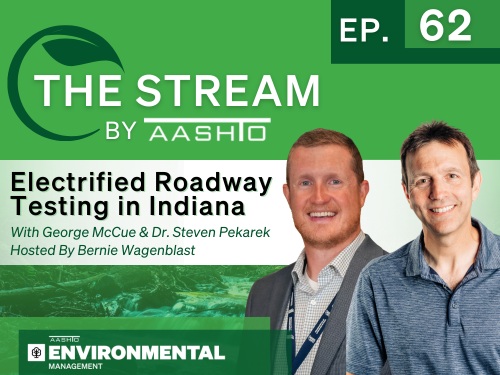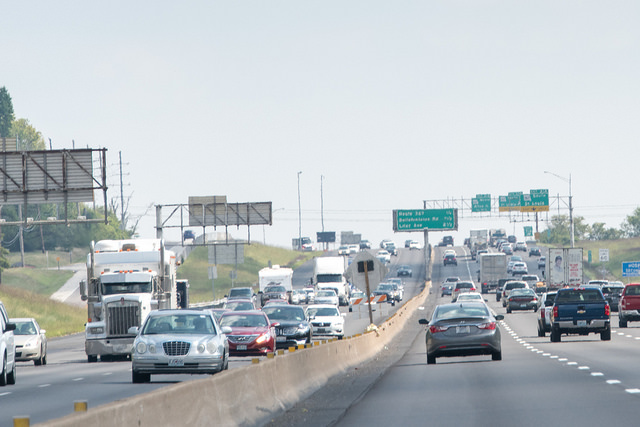The interstate highway system will become increasingly unreliable and congested – plus costlier to operate, maintain, and repair – if new funding sources are not located and the commitment between the states and federal government is not “re-strengthened.”
[Above photo by Missouri DOT.]
Those were the main takeaways from speeches by Norman Augustine and Norman Mineta given during the Chair’s Luncheon during the 2019 Transportation Research Board annual meeting last week in Washington, D.C.

Augustine – the former chairman and CEO of Lockheed Martin Corp. and chair of the National Academies of Sciences, Engineering, and Medicine committee that produced a report detailing the needs of the U.S. interstate system – explained in remarks delivered via video that the nation’s highways “need a great deal of reconstruction” even as funding sources “are much more harder” to find.
“The fuel tax is badly eroded by the effects of inflation, the increased fuel efficiency of vehicles, and the rise of non-fuel-using vehicles” such as cars and trucks that operate on electricity, natural gas, or other alternate energy source, he said.
“In a way, this has created the perfect storm: increased demand alongside falling sources of revenue,” Augustine stressed.

Mineta, a former Transportation Secretary during President George W. Bush’s administration, stressed that the “highway system is the backbone of the nation’s transportation system – it is the circulatory system for the nation. Not only does it facilitate the movement of goods and services, but the movement of people as well. The system integrated our nation – increased economic vitality, opened up employment opportunity for all, and added to the country’s connectivity. It also allows large and small companies alike to move products not just within the country but around the world.”
Yet Mineta argued that the U.S. highway system is long overdue for a “renewal and modernization program” as it was conceived in the 1930s, designed in the 1940s, and largely built in the 1950s.

“We need approximately $55 billion each year for next 20 years to renew the system, regardless of how fast or slow travel demand grows; that investment is vital,” he stressed.
“But the question that arises is how to pay for all of this. Funding should be based on user fees, for the obvious reason – for fairness. Yet we need to ensure a long-term funding commitment that is not threatened by declining fuel tax revenues. To that end, Congress needs to prepare to deploy new forms of funding such as per mile charges,” Mineta said. “Doing to so systematically and fairly will require time and diligence and, in the interim, the gas tax needs to be raised. We need to refocus our attention on the interstate system. We need to prepare the system for the next generations to come.”
 Nation
Nation
The Stream by AASHTO: Electrified Roadway Testing
December 5, 2025 Nation
Nation

